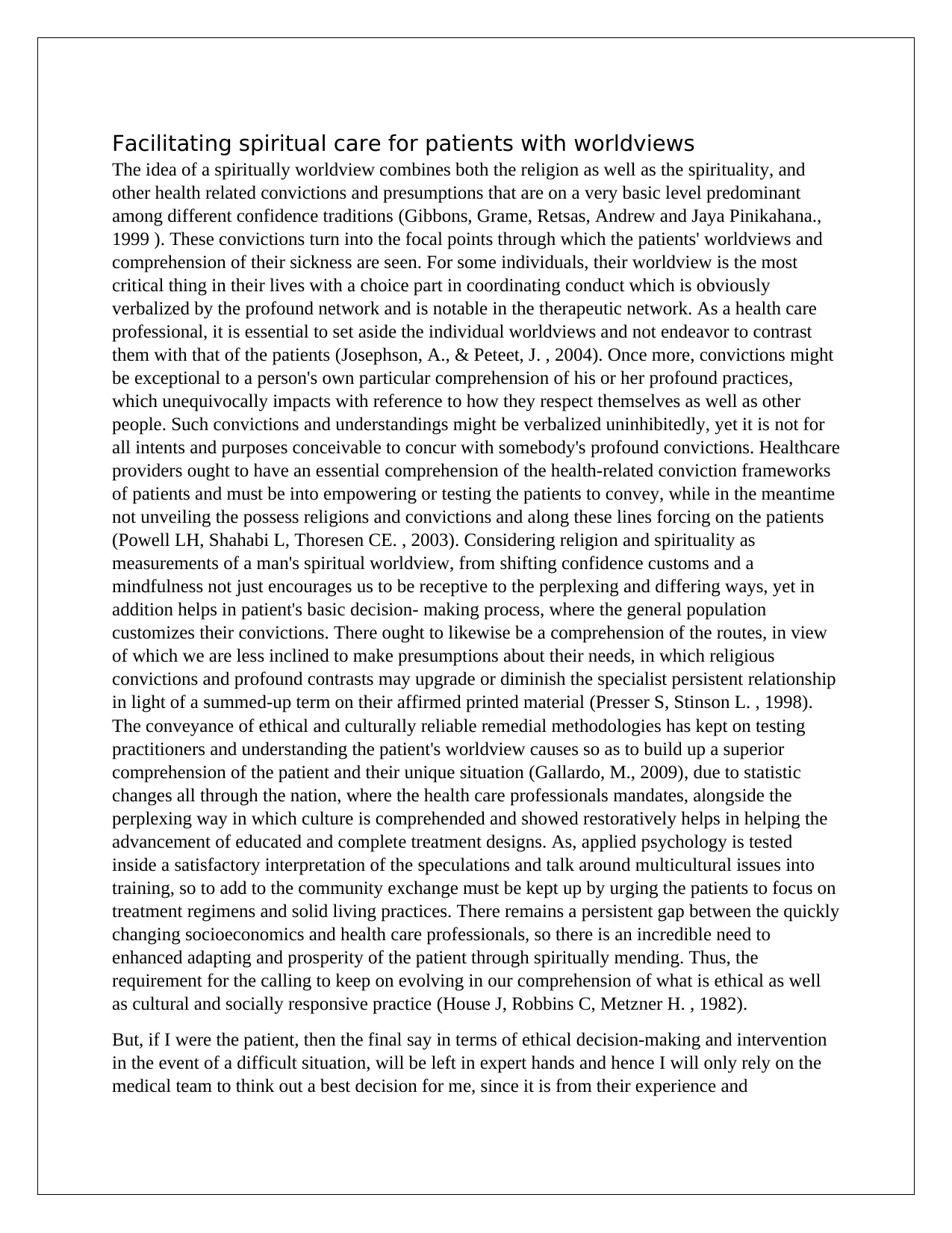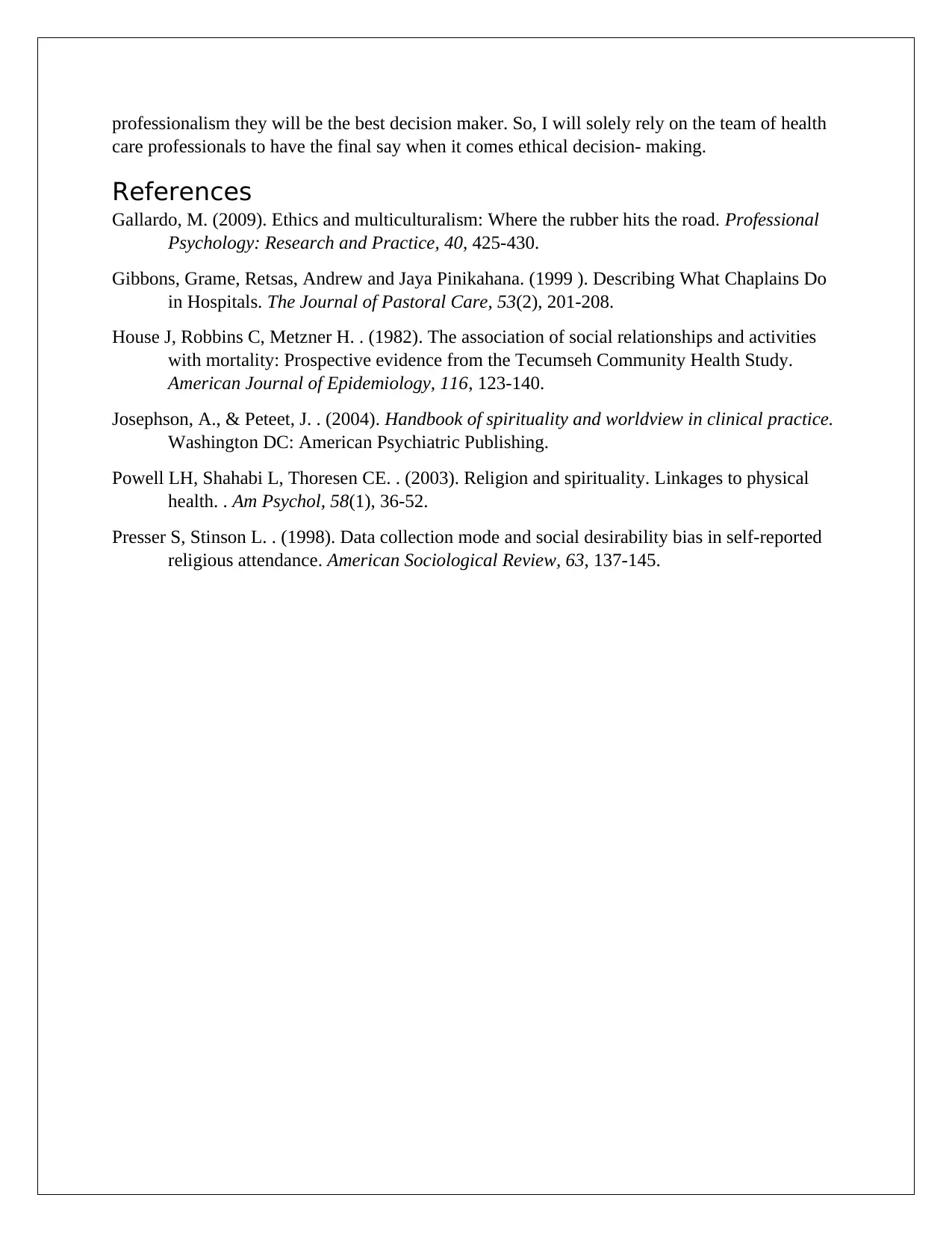Understanding and Facilitating Spiritual Care for Patients
VerifiedAdded on 2019/10/01
|2
|888
|116
Essay
AI Summary
This essay explores the critical role of spiritual care in healthcare, emphasizing the significance of understanding patients' diverse worldviews, which encompass both religious and spiritual beliefs, as well as their health-related convictions. It highlights the importance of healthcare professionals acknowledging individual worldviews and avoiding comparisons. The essay underscores the need for providers to possess a fundamental understanding of patients' belief systems, promoting open communication while respecting personal convictions. It also discusses the impact of religious and spiritual differences on the patient-provider relationship, and the importance of ethical and culturally sensitive therapeutic approaches. The essay concludes by emphasizing the importance of healthcare professionals' expertise in ethical decision-making, while acknowledging the patient's reliance on the medical team's judgment in difficult situations, referencing relevant studies and literature to support its claims.
1 out of 2



![[object Object]](/_next/static/media/star-bottom.7253800d.svg)